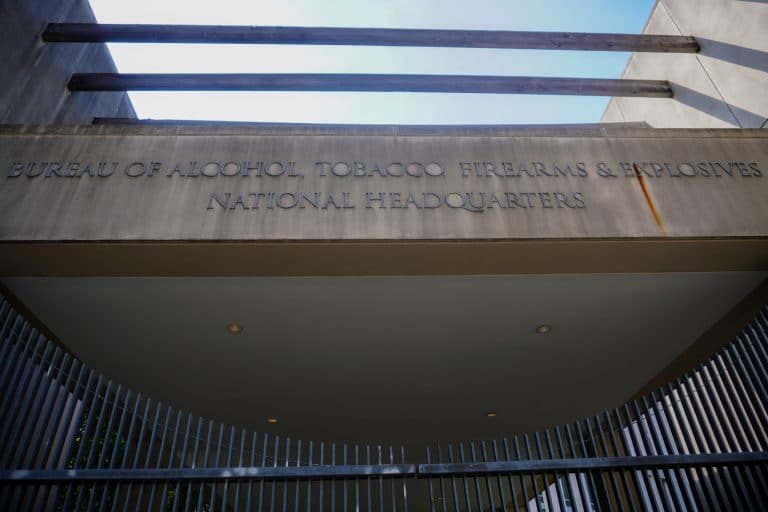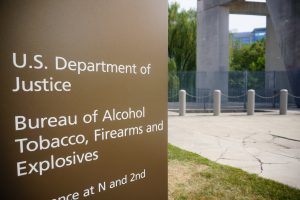President Donald Trump’s successful 2024 campaign has Second Amendment advocates facing a dilemma. They can either try to use their political capital to destroy the Bureau of Alcohol, Tobacco, Firearms, and Explosives (ATF) or work within it to accomplish their preferred policy goals.
At the top of some advocates’ wish lists is finding an ATF director who will shut down or otherwise cripple ATF. Even in the unlikely event they were successful, shutting down ATF could backfire spectacularly without substantial, and likely unobtainable, federal firearms law reforms. Instead of trying to eliminate ATF, gun advocates would fare better working through ATF to implement their preferred regulatory reforms.
Most regulations that burden gun owners and dealers come directly from federal firearms laws: the Gun Control Act of 1968 and the National Firearms Act. The Gun Control Act—not ATF—requires individuals to become licensed dealers if they sell guns primarily for profit. It generally prohibits selling guns in interstate commerce, except by individuals who have federal firearms licenses. It restricts the importation of firearms that lack a sporting purpose. And both the Gun Control Act and the National Firearms Act impose significant restrictions on short-barreled rifles and shotguns and firearm suppressors (often called silencers).
Shutting down ATF would do nothing to relieve the legal restrictions imposed by federal gun-control laws. These restrictions stem directly from laws passed by Congress, and only Congress can change or eliminate them. Gun advocates are unlikely to find sixty votes in the Senate to repeal or reform most federal gun laws. Moreover, to the extent that Congress has delegated some authority to regulate firearms with the executive branch, federal firearms laws place the burden of regulating firearms with the Attorney General, not with ATF. ATF only exercises functions that the Attorney General has delegated. If ATF did not exist, the Attorney General would either need to handle these functions personally or delegate the functions to another bureau within the Department of Justice.
Either option would be counterproductive for gun owners. The Office of the Attorney General lacks the ability to issue over 100,000 federal firearm licenses and to approve approximately 1,000,000 National Firearms Act applications. Given this, it’s likely these functions will get transferred to another bureau, such as the Federal Bureau of Investigation (FBI). A move like that would likely come at a high cost and comes with the risk of the transfer going poorly.
Moreover, the FBI (or another Department of Justice agency) may end up regulating firearms much the same way that ATF has to this point.
In any case, gun owners will still face the regulations imposed by federal firearms laws. Neither the Gun Control Act nor the National Firearms Act conditions its regulations on the Attorney General having a functional process to regulate firearms. Whether or not a smooth and timely process to issue federal firearms licenses exists, federal law will continue to prohibit interstate firearms sales for those without them. Federal law will also continue to prohibit the importation of firearms that the Attorney General (or another designee) finds are not “generally recognized as particularly suitable for sporting purposes.” Federal law will continue to register and tax certain firearms. And federal law will continue to require the Attorney General’s permission to transport certain firearms regulated by the National Firearms Act across state lines.
Removing these functions from ATF would also complicate the ability of gun advocates to lobby presidential administrations to appoint gun-friendly directors of the agency in charge of regulating firearms. Right now, an ATF director candidate’s position on gun control dominates the debate on whether he will be nominated and confirmed. (No one seems to care where an ATF nominee stands on alcohol and tobacco enforcement.) In contrast, political debates on selecting the Attorney General or the FBI director involve much more than gun politics. When appointing individuals to these offices, presidents may be more willing to look past their prior pro-gun control positions to achieve other political objectives for these offices.
Instead of using their political capital to try and dismantle the ATF, gun advocates would likely see more success working within the system. While federal firearms laws cannot be repealed by executive action, they still delegate significant power to the Attorney General (who subdelegates to ATF) on how the laws are implemented. The Trump Administration could shift many ATF policies in their favor.
Let me give two illustrative examples.
Although federal law restricts the importation of firearms without a finding that the firearms are useful for sporting purposes, ATF determines what constitutes “sporting purposes” for firearm importation. The Trump Administration is no more bound to the ATF’s definition of sporting purposes from the Clinton Administration than the Clinton Administration was bound by the Reagan Administration’s definition. Consequently, there is nothing stopping the Trump Administration from having a more expansive conception of what constitutes a legitimate sporting purpose.
The Trump Administration can also guide how ATF exercises its investigative and prosecutorial discretion over federal firearm licensees. This could include reversing the Biden Administration’s “zero tolerance” policies that have led to federal firearms licensees being revoked over minor paperwork violations.
Reforming federal firearms policies requires extensive technical knowledge of administrative law combined with a pragmatic and realistic policy agenda. If gun advocates want to translate their electoral success into tangible policy changes, they will need to work within the regulatory state that many of them despise rather than trying to overthrow it.





